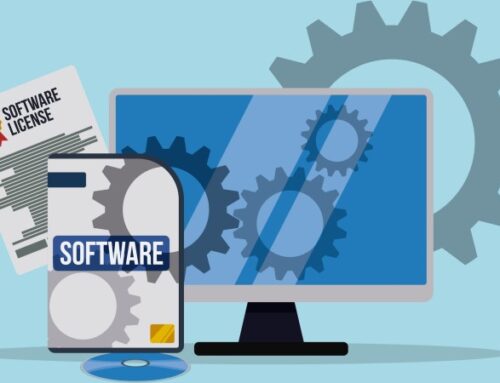Cloud services have become an indispensable part of day-to-day work in a company. But what type of cloud do you choose? Is your own private cloud the right thing for you?
The types of cloud
The different types of cloud differ in who has access to them and to whom they are made available. This results, among others, in the three main types of cloud, which are defined as follows:
- The public cloud. Services such as file sharing are available to all via the Internet.
- The private cloud. This is the cloud that exists exclusively for a company. It is not publicly accessible.
- The hybrid cloud. A hybrid of the other two cloud forms.
Which form of cloud you ultimately choose depends strongly on your requirements. Because these vary in their characteristics, you should make some preliminary considerations. Do you need a scalable cloud solution that adapts to your changing working conditions? Do you already have enough computing power for your own cloud? Are your security needs met? These and many other questions lead to an answer on the basis of which you can decide on a type of cloud. We would now like to introduce the private cloud, the externally closed version, in more detail.
The private cloud by definition
“By definition, the private cloud is a cloud service whose infrastructure is provided exclusively by a single organisation comprising multiple consumers (e.g. business units). The cloud can be owned, managed and operated by the organization, by a third party or a combination of both. The Private Cloud may be operated on or off the premises of the Organization (On/Off Premises).” So much for definition. Here we would like to point out the first misunderstanding that often occurs. A private cloud does not have to be operated on your company premises and by you. There are also third-party providers who offer infrastructure exclusively for your use and thus also enable a private cloud. Microsoft describes the private cloud as a company cloud with the advantages of a public cloud. The advantages include self-service, scalability and elasticity. At the same time, it offers additional control and customization options that are made available via a locally hosted computer infrastructure. Corporate firewalls and internal hosting of the private cloud increase data security and data protection. At the same time, it ensures that there is no access to transactions and confidential data by third parties. The drawback is that the company’s IT department is responsible for the cost and liability of managing the private cloud. From this follows: The cost of the private cloud is the same as that of traditional data centers.
The possibilities of a private cloud
However, this is only a look at the pure hardware. With this, different scenarios can now be realized. For example, an Infrastructure-as-a-Service (IaaS). The hardware is therefore used as such. The computers, the network and above all the storage space provided are offered as a service in the company. Examples of this are data exchange, data storage and data synchronization. Platform-as-a-Service (PaaS) is also possible. This is no longer about the hardware, but about the applications offered. This can be cloud-based software via the Internet browser or your very own tailor-made application, which is only used in your company. As already described above, forms of the hybrid cloud can also be included in the sense of scalability.
TeamDrive in your private cloud
If you already have computing and storage capacity in your company, the private cloud can also be implemented with TeamDrive. This allows you to benefit from maximum data security. You have complete and unrestricted control over your data, administration and user administration. On the one hand you are independent and on the other hand you can rely on our expertise in data encryption. Once the TeamDrive Enterprise hosting server has been installed, nothing stands in the way of your own secure private cloud that is encrypted at the end. This makes this server the ideal solution for operation in your own data center. And all this with complete self-management of all data with minimal administrative effort. For the comfortable administration of your users you get a client with a powerful hosted HTML based management console. Integration into your directory services such as AD/LDAP, OAuth 2.0 or others is also possible via the module for external authentication included in the scope of delivery.
Please do not hesitate to contact us if you have any questions regarding all offers or individual options.




